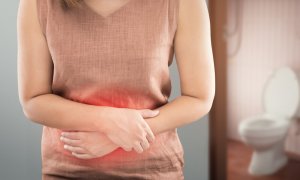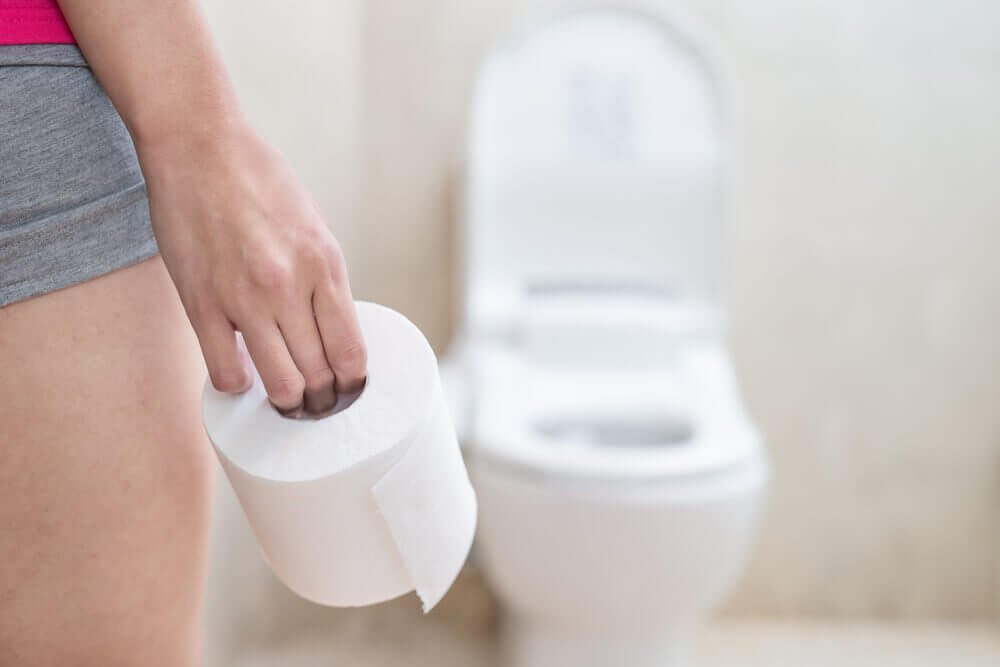How to Treat Constipation Without Laxatives

Treating constipation without using any laxatives is possible, but they involve a good amount of healthy habits in your daily routine. Many people who experience constipation have usually experienced it since a young age. These people have always found it difficult to go to the bathroom and require a long time for a bowel movement to pass.
However, constipation also involves a number of other issues such as feeling bloated, gas, and discomfort of not completely evacuating. Sometimes people with constipation also get hemorrhoids due to the hardness of their stools.
Doing Exercise Really Helps
When treating constipation without laxatives you need to start doing more regular exercise. Believe it or not, exercising improves intestinal transit. When you exercise, the muscles in areas that move stools, help them advance through the intestines. Many people with constipation tend to have problems with peristaltic movements.

However, doing exercise is good for your hydration. Many people with constipation don’t drink enough water which causes their stools to be even harder. When you do exercise you become thirstier, and therefore drinking more water is inevitable.
Have you ever noticed that after exercising you need to go to the bathroom? This fact may be very surprising to people who experience constipation. They’ll find that after exercising they may be able to go to the bathroom very easily. Exercise is very good for treating constipation without laxatives.
Read this article: If you exercise, can you eat whatever you want afterwards?
Changes in Diet
Do you eat enough fiber? Does your diet include a lot of fruit and vegetables? Or do you eat a lot of processed foods? This will make a big difference. If you experience constipation, you will have noticed that eating a lot of junk food makes you go to the bathroom a lot less.
Therefore, you should eat a lot more fruit and vegetables in your diet, which will improve intestinal transit and help you go to the bathroom more often. You’ll notice the difference as soon as you make this change. You should also pay attention to the medications that you might be taking for any other illnesses. For example, thyroid conditions or diabetes. Sometimes, certain drugs can cause constipation.
Check this article too: How to Alleviate Constipation if You Already Follow a Healthy Diet
Follow a Routine
This is one of the best tips for treating constipation without laxatives, although you might respond, “but what if I don’t need to go?”. Don’t worry, go at the time you choose and take your time.

Following a routine doesn’t really work for people who experiences constipation. Usually they have to wait a bit before going to the bathroom. Sometimes, they may need to force it. So, it’s a good idea to sit down and take your time, even though you might not feel the need to go.
The best thing is to always go at the same time so your body gets used to it. It could be before or after breakfast, before exercise, or before going to bed. You choose!
Adopt a Good Posture
The modern toilet is not great for posture when it comes to bowel movements. However, you can make things a little easier for yourself. For example, you could place a stool underneath your feet or put position your feet on your tiptoes.
This will be more like if you were squatting, which is the best posture for bowel movements. Why is this? It’s because you will create abdominal pressure that’s good for bowel movements. What helps you treat constipation? Do some of these methods work better than others? Trying these tips could notably improve your constipation, especially doing exercise.
However, watching what you eat is also very important. No matter what, it’s all up to you to improve this condition.
All cited sources were thoroughly reviewed by our team to ensure their quality, reliability, currency, and validity. The bibliography of this article was considered reliable and of academic or scientific accuracy.
- Liu, L. W. C. (2011). Chronic constipation: Current treatment options. Canadian Journal of Gastroenterology. https://doi.org/10.1155/2011/360463
- Bae, S. H. (2014). Diets for Constipation. Pediatric Gastroenterology, Hepatology & Nutrition. https://doi.org/10.5223/pghn.2014.17.4.203
- Leung, L., Riutta, T., Kotecha, J., & Rosser, W. (2011). Chronic Constipation: An Evidence-Based Review. The Journal of the American Board of Family Medicine. https://doi.org/10.3122/jabfm.2011.04.100272
- Biggs, W. S., & Dery, W. H. (2006). Evaluation and treatment of constipation in infants and children. American Family Physician. https://doi.org/10.1097/01.mpg.0000233159.97667.c3
- James W Anderson, Pat Baird, Richard H Davis, Jr, Stefanie Ferreri, Mary Knudtson, Ashraf Koraym, Valerie Waters, Christine L Williams, Health benefits of dietary fiber, Nutrition Reviews, Volume 67, Issue 4, 1 April 2009, Pages 188–205, https://doi.org/10.1111/j.1753-4887.2009.00189.x
This text is provided for informational purposes only and does not replace consultation with a professional. If in doubt, consult your specialist.








